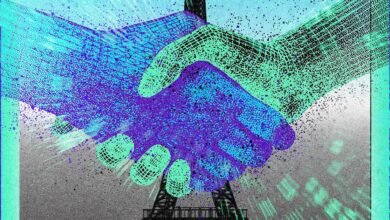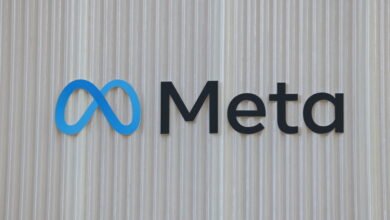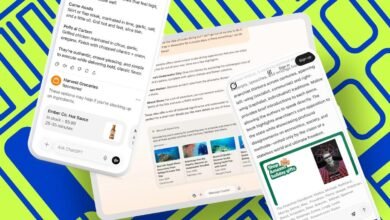Sam Altman Claps Back at The New York Times

▼ Summary
– OpenAI CEO Sam Altman and COO Brad Lightcap unexpectedly took the stage early during a live podcast interview, quickly steering the conversation toward The New York Times’ lawsuit against OpenAI over alleged misuse of copyrighted content.
– Altman criticized The New York Times for requesting OpenAI to retain user data, including private chats, despite users’ deletion requests, calling it a privacy concern while still expressing respect for the publisher.
– The interview highlighted growing tensions between tech companies like OpenAI and media publishers, with lawsuits over AI training on copyrighted works, though recent legal wins for AI firms like Anthropic may shift the landscape.
– Altman revealed Meta CEO Mark Zuckerberg is aggressively recruiting OpenAI talent with lucrative offers, while Lightcap joked about Zuckerberg’s self-perceived superintelligence, underscoring industry competition.
– OpenAI faces challenges balancing legal battles and competition with broader AI safety concerns, such as preventing harmful chatbot interactions, though Altman admitted limitations in addressing severe mental health cases.
Sam Altman didn’t hold back during a recent live podcast appearance, directly challenging The New York Times over its lawsuit against OpenAI while addressing broader tensions in the AI industry. The OpenAI CEO’s sharp remarks set the tone for a wide-ranging discussion that touched on legal battles, corporate rivalries, and the ethical challenges of advanced AI systems.
The exchange unfolded during a live recording of the Hard Fork podcast in San Francisco, where Altman and OpenAI COO Brad Lightcap joined hosts Kevin Roose of The New York Times and Casey Newton of Platformer. Almost immediately, Altman steered the conversation toward the lawsuit filed by the newspaper, which accuses OpenAI of improperly using its content to train AI models. He took particular issue with the Times’ request that OpenAI retain user data, even from private ChatGPT conversations, as part of legal discovery.
“One of the great institutions is taking a position that we should preserve user logs, even in private mode, even if users ask us to delete them,” Altman said. “We still respect the Times, but that’s something we fundamentally disagree with.” The hosts, both journalists with ties to the publication, avoided taking sides, emphasizing their lack of involvement in the legal dispute.
The tense moment highlighted the growing friction between AI companies and media organizations over copyright and data usage. Recent legal developments, including a ruling in favor of Anthropic in a similar case, suggest the courts may be leaning toward tech firms in these disputes. Altman and Lightcap’s confidence onstage may reflect this shifting landscape, but OpenAI faces challenges on multiple fronts.
Meta’s aggressive recruitment tactics came up, with Altman revealing that Mark Zuckerberg has been offering OpenAI employees massive compensation packages to join Meta’s AI efforts. Lightcap joked, “I think [Zuckerberg] believes he is superintelligent,” hinting at the competitive undercurrents between the two companies.
Questions also arose about OpenAI’s partnership with Microsoft, which has reportedly grown strained as both companies expand into overlapping markets. Altman acknowledged tensions but downplayed any long-term rift: “In any deep partnership, there are flashpoints. We’re both ambitious, but the collaboration remains valuable.”
Beyond corporate drama, the discussion turned to AI’s societal risks. Newton pressed Altman on cases where vulnerable users turned to ChatGPT for harmful discussions, including conspiracy theories or self-harm. Altman admitted that while OpenAI actively blocks dangerous conversations and directs users to professional help, the company hasn’t fully solved the problem of reaching those in severe mental distress.
“We don’t want to repeat past mistakes by reacting too slowly,” he said. “But for someone on the edge of a psychotic break, a warning might not be enough.”
The evening underscored OpenAI’s balancing act, defending against legal and competitive threats while grappling with the ethical responsibilities of deploying powerful AI. Altman’s willingness to confront critics head-on suggests the company isn’t shying away from the fight, even as the stakes grow higher.
(Source: TechCrunch)





